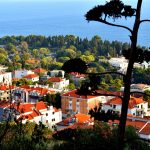Romana Vlahutin is the EU’s representative in Albania.
While everyone is talking about the “European future”, the situation in the countries of the Western Balkans is almost chaotic. While Macedonia, Kosovo, Serbia and Bosnia and Herzegovina are in the media focus, Albania is sometimes forgotten, although it has its own very serious problems, writes Globus on May 18, 2017.
Albania is a member of NATO and a candidate for membership of the European Union, its economy and tourism are growing, but it still cannot solve a permanent political conflict which has polarised the whole country. It is not a case of usual political argument, but a conflict in which all rules of political debate seem to be suspended.
In the middle of the conflict is Romana Vlahutin, a Croatian diplomat who is the European Union’s representative in Albania. She has become the focus of verbal attacks by some of the media and politicians, mostly those from the opposition. Together with US Ambassador Donald Lu, she has insisted on the adoption of judiciary reform which includes provisions on the decriminalisation of politics. That is one of the conditions for Albania to progress on its path towards European Union membership. However, there are obviously influential circles in Albania which do not like that and are worried that it might interfere with their plans.
Vlahutin has recently experienced something which does not happen often to diplomats. Last week, she received a letter from Paris written by the greatest Albanian writer Ismail Kadare. He wrote the letter in order to apologise to Vlahutin, on behalf of all Albanians, for the attacks and insults published in the Albanian media. Kadare, and many other prominent Albanians, felt quite embarrassed due to a post which one controversial journalists, known for his conspiracy theories, published to insult Vlahutin. He wrote that she was a representative of “Pan-Slavism” who had been sent to Albania by “Soroids” (those paid by billionaire George Soros) in order to implement a plan for a new Yugoslavia which would include Albania. He added that “some Albanian who loves his country could kill Romana Vlahutin, and that would not be a terrorist act, but an antiterrorist one.”
After the post was published, the police arrested him due to incitement to murder, but he was later released. He used an article published a long time ago by a controversial website in Croatia, for which Vlahutin says she had successfully sued the publisher, to base his article upon.
However, for many media outlets in Albania, facts do not matter. The journalist said that he would publish “details” of the scenario for creating “a new Yugoslavia”. A few years ago, that same controversial journalist filed a lawsuit against the Quran, demanding that it should be banned for “calling on genocide, crimes and hatred towards other religions.”
Although Vlahutin did not publicly react to the post, many in Albania have taken the threat seriously, and as a demonstration of wider problems. Many well-known persons publicly expressed their support for the head of the EU Delegation and described the insults and threats as “a humiliation and disgrace for all Albanians.”
The most prominent support came from Ismail Kadare, the greatest Albanian writer. “Allow me to send you this personal letter, shaken by the unscrupulous insult which was published in the press today. I will not try to explain that the insult was issued by a deranged person and that it has nothing to do with the whole nation and society. However, the insult was published in the media, so we are all, in a way, responsible. I would like to share with you the grief which can be felt by a person who came to help a country solve its problems, and is now facing such ingratitude. Dear Romana Vlahutin, I would be ready to apologise to you on my knees in order for you to be sure that the gratitude towards you will remain unthreatened”, wrote Kadare.
Vlahutin is a former advisor to the then Croatian President Ivo Josipović. She is an experienced diplomat, working during her career in Croatian embassies in the United States and Serbia. She was also a high official at the OSCE mission in Kosovo, and now she is the head of the European Union Delegation in Tirana. Together with Hidajet Biščević, who is the EU’s Ambassador in Tajikistan, she is the highest ranking Croatian diplomat in the European service.
One of the main challenges for Albania is the fight against corruption and organised crime. This has been Vlahutin’s focus from the very beginning, with full support of the European Union and the US ambassador. The judiciary reform, which includes the establishment of a special prosecutor for corruption and organised crime, as well as the vetting of all judges and prosecutors, enjoys large support among people of Albania, but has caused an earthquake in Albanian politics. Many believe that this is the real reason for the verbal attacks on Vlahutin and her American colleague.
The main feature of the reform is the vetting of judges and prosecutors, in order to determine whether they own any illegal property, whether they are connected with criminal groups and whether they are professionally capable of performing their duties. Among those particularly bothered are those who own more property than they could have legally acquired through their income. After the fall of the Enver Hoxha regime, Albania has completely changed the personnel in the judiciary, so some of the current judges do not even have a university degree.
Albania is unlikely to resolve the crisis soon, given that conflicts between the government and the opposition continue, not just in the Parliament but on the streets as well. On Saturday, the opposition organised a large protest in Tirana, demanding the government’s resignation and the appointment of an interim government. It accused the government of having links with criminal organisations and for controlling the drug smuggling operations.
The opposition has decided to boycott the elections on 18 June. European Commissioner Johannes Hahn expressed his regret for the opposition’s decision, but added that the European Union would accept the results of the elections.
Insults and accusations among politicians are such that it would be inappropriate to publish them in the media. Interestingly, in all countries in the region there is a common conspiracy theory, and that is that “George Soros is behind everything”. At the same time, there are fewer and fewer young people who see their future in the country. Many are getting ready to move abroad.
President of the European Commission Jean-Claude Juncker said once that it was unacceptable that Albania was a candidate for EU membership and that at the same time there were so many Albanians asking for asylum in the European Union. Albania is believed to be a country with the largest diaspora in Europe and a country, together with Kosovo, where the number of citizens is declining the fastest.
If tensions subside, Albania could receive a recommendation for the opening of the accession talks with the European Union this year. However, if problems are not resolved soon, that opportunity will be missed.







